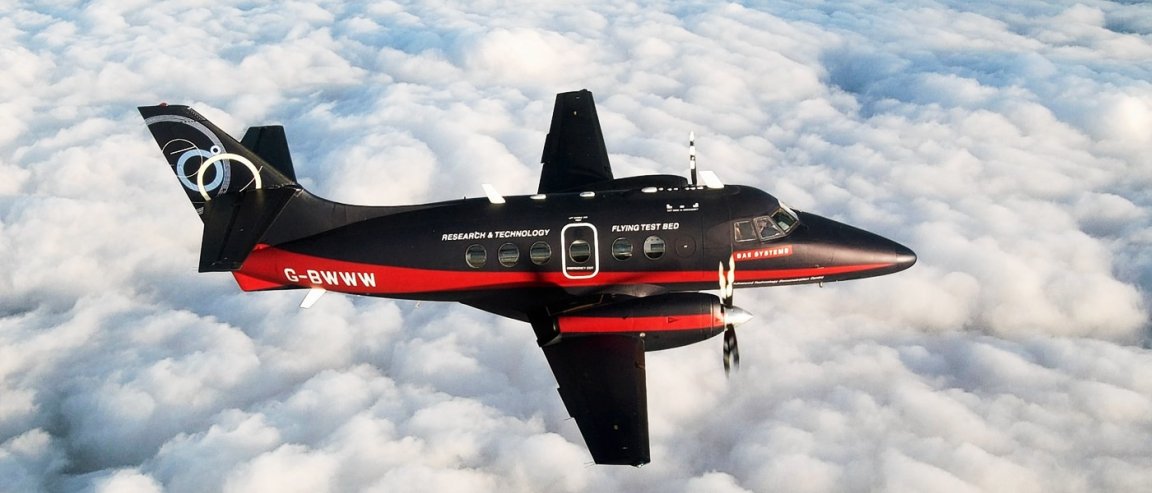
People-Free Piloting
As companies like Tesla continue to show how autonomous cars can safely take over our roads, U.K. defense contractor BAE Systems is on track to do the same for the skies.
The company is preparing to conduct a new round of testing that will increase the capability of its autonomous system to pilot aircraft. “Our priority as always is to demonstrate the safe and effective operation of autonomous systems, and together with NATS we are working towards the possibility of flying our own unmanned systems in a highly controlled environment in the U.K.,” Maureen McCue, the head of research and development at BAE, told The Engineer.
BAE’s converted Jetstream 31 aircraft will complete 17 flights, flying routes 482 km (300 miles) in distance between the cities of Inverness and Lancashire, according to a BBC report. The flights won’t be complete autonomous, though, as the aircraft will only engage its autonomous systems midair at 4.6 km (15,000 ft) while putting take-off and landing duties in the hands of human pilots.
The converted Jetstream 31 has a range of features designed to replace the human contributions to flying a plane. The aircraft is equipped with an identification system that can log data from transponders of other planes, and cameras mounted in the cockpit allow the plane to note obstacles like clouds. The system can identify any upcoming hazards in the air and adjust its course away from danger if the need arises.

The More The Merrier
Over the years, planes have been given various automation functions that can assist pilots while flying a plane. They have systems that guide the altitude and speed of a plane akin to a cruise control system in cars. Systems are in place that automate a plane’s landing, as well, which make it easier for pilots to perform the crucial maneuver.
These systems combined with the ones that BAE is testing right now are unlikely to completely replace commercial pilots in the near future since the general public still views autonomous systems with caution. However, an autonomous system can be helpful to pilots by acting like another set of eyes in a cockpit, ones that never get sleepy or distracted, which ultimately leads to safer skies and more peace of mind for passengers aboard a plane.